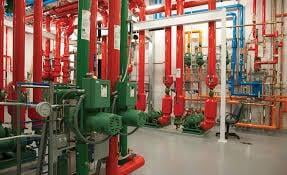
NYC Local Law 87 NYC, buildings larger than 50,000 square feet will be required to file an Energy Efficiency Report with the Department of Buildings. It includes details of the energy audit results and retro-commissioning measures.
An energy audit is an inspection, survey, analysis, and report of energy flows to improve energy efficiency in a building. It will study the base buildings systems, such as the building envelope, HVAC (heating ventilation and air conditioning), conveying systems, domestic hot water systems and, electrical and lighting systems. While Retro-Commissioning is a detailed look at how well HVAC and
lighting controls are actually working.The energy conservation measures (ECM) uncovered during Retro-commissioning typically involve reprogramming controls, repairing dusty dampers, and replacing faulty actuators, valves, variable speed drives, and sensors. Building retro-commissioning will also take a thorough look at how building operators are using the controls since poor operational procedures usually lead to energy waste. ECMs discovered typically are low cost or no cost measures. The purpose of retro-commissioning is to optimize existing system performance through fine-tuning and upgrades rather than relying on major equipment replacement (which energy audits sometimes do).
According to Local Law 87 NYC, the compliance date is determined by the last digit of the building’s tax block number. If the block number ends in ‘8’ that indicates the report is due in 2018, similarly a number ending in ‘9’ would indicate 2019, and so on. After filing the initial report on the designated due date, Local Law 87 NYC requires that the building files an energy efficiency report every 10 years.
Energy Audit (EA) EERC1 :
Building owners must ensure that an Energy Audit is performed by or under the supervision of an energy auditor and that the results of the audit are filed with the Department of Buildings as an energy efficiency report. The report contains information on both, audit and retro-commissioning. Energy audits must include all of the base building systems, including building envelope, HVAC systems, conveying systems, and electrical and lighting systems. The audit must identify all reasonable measures and capital improvements that would result in energy use or cost reductions, the associated savings, cost of implementation, and simple payback period.
Retro-Commissioning (RCx) EERC2 :
Before filing an energy efficiency report, owners must also ensure that Retro-Commissioning is completed by a retro-commissioning agent for the required base systems. The efficiency of base building systems must include an analysis of operating protocols, calibration and sequencing, cleaning and repairs, and training and documentation issues. The retro-commissioning report must include information relating to the project team, building information, testing protocol, a master list of findings, and a catalog of deficiencies corrected. LEED-certified Existing Buildings earning a point for Existing Building Commissioning within two years of an energy efficiency report are exempt from the retro-commissioning requirement.
Violations
The City is authorized to issue a violation for any listed building that has not filed an EER by December 31 of the year in which the EER is due. Failure to file by December 31 will result in a Class 2 violation and a penalty of $3,000 for the first year. Continued failure to file will result in additional violations on an annual basis of $5,000 for each subsequent year. The City will not accept outstanding EERs until penalties are paid in full.